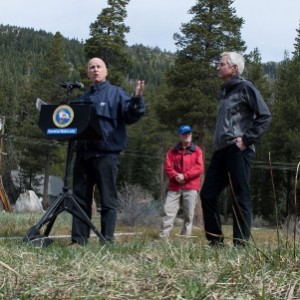The Stream, April 2: Daily Fracking Violations in Colorado, Pennsylvania, West Virginia
The Global Rundown |
Pennsylvania, West Virginia and Colorado saw 4,600 fracking violations between 2009 and 2013. The Philippines, Hong Kong, Taiwan and Japan are vulnerable to increasingly intense climate events. China has opened its water markets to foreign investors.
“It’s extremely difficult for the public to get this kind of information. The companies are violating the law too often, and we need policy solutions to increase transparency and to change the consequences for not complying.” — Amy Mall, author of a Natural Resources Defense Council report on fracking violations, reflecting on the fact that only 3 of 36 fracking states had violation information publicly available. (Bloomberg Business)
By The Numbers |
2.5 per day – Average number of violations associated with hydraulic fracturing (fracking) operations in Pennsylvania, West Virginia and Colorado. Between 2009 and 2013, regulators issued 4,600 citations for things like waste water spills, well leaks and pipeline ruptures, according to a report released by the Natural Resources Defense Council. Report authors noted that only these three states make records available online, leaving 33 fracking states out of the analysis. About 4000 of the violations occurred in Pennsylvania. Bloomberg Business
Science, Studies, And Reports |
New research from risk analysis company Verisk Maplecroft says that densely populated islands in Southeast Asia are likely to see more intense climate events as time goes on. Places like Hong Kong, Japan, the Philippines and Taiwan are vulnerable because of their large populations and land exposure to storm surges and sea level rise. Reuters
On The Radar |
China has announced that it will open its water markets to foreign investors. China needs private capital in order to clean up its heavily polluted water and improve its infrastructure so that it can maintain its policy of food and energy self-sufficiency. Reuters
is both a scientist and a journalist, she holds an MS in Environmental Engineering from Michigan Technological University, and she brings proficiency in ESRI’s ArcGIS mapping software.





Leave a Reply
Want to join the discussion?Feel free to contribute!